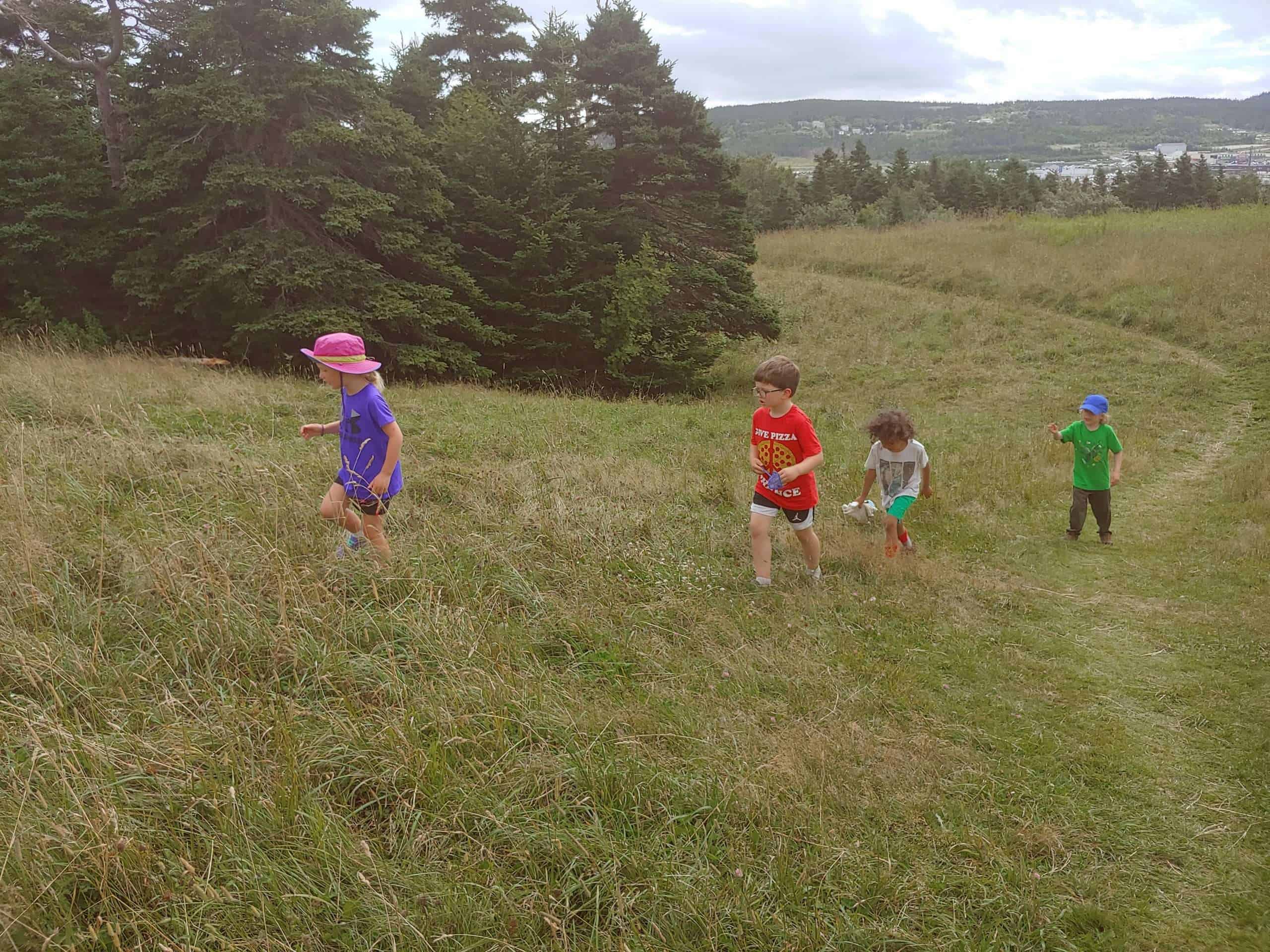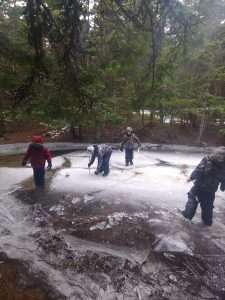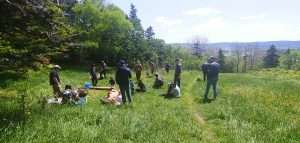
Informing Early Learning and Child Care Legislation in Newfoundland and Labrador
Thank you to Laura Molyneux, Cloudberry Forest School, Newfoundland and Labrador, for providing this post.
A colleague and I are writing a book together. We’re calling it “Things You Didn’t Think You’d Do As An ECE”. Today’s entry was about what to do when you find a dead blue jay. Last week we wrote a risk assessment on feeding buck goats in the kidding season. There’s also an entry about the time we had to shovel out the chicken coop after a storm because the chickens didn’t like having cold feet.

These experiences, and many more, are pieces of our own childhoods. Values of land, nature, creativity and whimsy that we are trying to instill in our own community at Forest School. After 10 years of practice, we have created a program at Cloudberry in which the common adjective from teachers, children, parents and licensing officers is “magic”.
This belief in land, in weather, in childhood freedom and the role of the adult led us to our project with the Lawson Foundation. We are creating a demonstration centre, lab school and proof of concept – showing as best we can how we take these values and blend them with the checklists, safety protocols and best practices of early childhood education and care, child care services legislation and regulation.
Our belief is that policy should have a purpose – to keep children safe and hold educators accountable to best practice. To us this doesn’t necessarily mean a militant over scrutinising of the storage of plastic bags in a change room or the nuances of what is defined as a play structure. To us policy and regulation should be a managed and mitigated risk approach combined with demonstrations of both programming and safety plans. The problem is not whether the plastic bags are in a locked cupboard or 12 feet up in the air, the problem is can the toddlers access the bags and put themselves or others in danger.
We believe that children, educators and inspectors are competent, capable and curious and have the capacity to make judgements and decisions that will keep themselves and others safe. Using our program, safety records and an external evaluation process, we are opening Cloudberry up to the Department of Education to explore the possibilities of licensing an outdoor play program such as ours. Combining the Early Learning Framework and the operational regulations to find where we fit and where policy and regulation needs to be fluid and flexible. To source the point of the policy and to explore opportunities to demonstrate the skills and capacities of children, highly trained educators and the health and safety regulators. To figure out whether the purpose of the policy is actually the height of the flushing toilet – or the opportunity to use research and best practice to show high quality hygiene standards in creative ways.

We are also opening ourselves up to educators. To let pre-service and in-service teachers participate both in training and in the program themselves, so they can become the high quality, competent and capable educators in outdoor pedagogy in their own centres, schools and communities. We can help support and guide educators throughout the province looking to start their own programs in their own communities.
Our school is on a farm, on a rock, on an island, in the middle of the North Atlantic ocean. We may have a lot going for us but I think the biggest thing is creativity and resilience. Our trees grow on 45 degree angles and we laugh when our Californian farmer suggested digging holes for fence posts, but we can still tell the story of the time it was freezing, sideways rain for 12 days in a row when one of the children took a deep breath, looked me straight in the eye and said “Isn’t this the best place ever Laura?”.
As our evaluator says, if we can do it in Newfoundland and Labrador we will be able to do it anywhere, and in a post-pandemic world I think that’s best for everyone.
Laura Molyneux is an outdoor early childhood educator based in Newfoundland. Her passion is creating community in weird and wonderful ways through Cloudberry Forest School from their location at the O’Brien Farm in St. John’s. When not at the farm she can be found keeping senior dogs alive well beyond their life expectancy and eating more take-out food than she should. As for the next adventure…she’s looking at buying a kayak and has been told that this summer she is going to learn to fish.
This project has been funded by the Lawson Foundation as part of their Outdoor Play Strategy – Phase 2.

